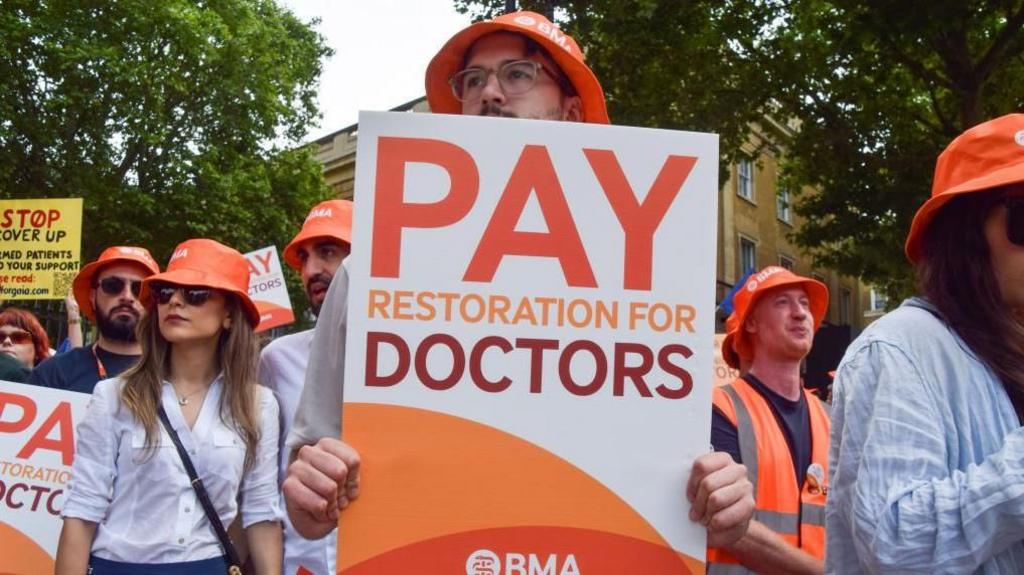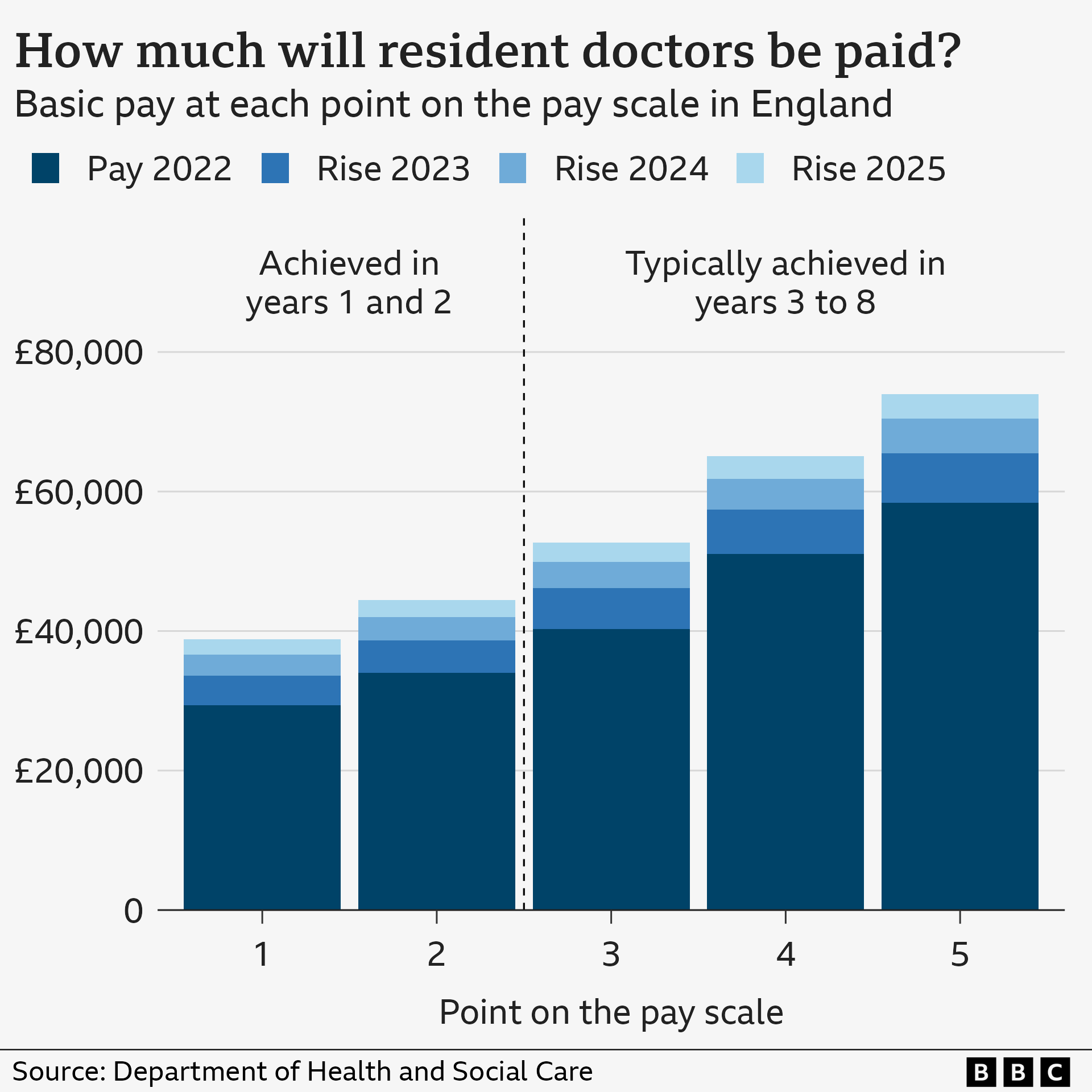Five-day doctor strike will go ahead, says BMA

Resident took part in a series of strikes under the previous government
- Published
A five-day doctors' strike due to start in England on Friday by members of the British Medical Association will go ahead, the union says.
Five days of talks between the government and the BMA had raised hopes of a breakthrough, focused on improving working conditions for resident doctors, the new name for junior doctors.
Health Secretary Wes Streeting wrote to the BMA earlier on Tuesday saying he would continue talks if strike action was postponed.
But the BMA said what was up for discussion was not enough and achieving better pay remained the key issue.
Streeting responded by saying the union had "recklessly and needlessly" opted for strike action.
BMA resident doctors committee co-chairs Dr Melissa Ryan and Dr Ross Nieuwoudt said they had tried to reach a compromise during the talks.
"We have always said that no doctor wants to strike and all it would take to avoid it is a credible path to pay restoration offered by the government.
"We came to talks in good faith, keen to explore real solutions to the problems facing resident doctors today.
"Unfortunately, we did not receive an offer that would meet the scale of those challenges.
"While we were happy to discuss non-pay issues that affect doctors' finances we have always been upfront that this is at its core a pay dispute."
Why are resident doctors striking and what are they paid?
- Published13 November
Loan forgiveness
A range of different non-pay related issues have been discussed over the past week after Streeting made clear he could not shift on pay.
This included the government covering the cost of mandatory exam fees which can run to several thousand pounds during medical training as well as giving doctors more control over where they are placed during their first two years of training and more notice of rotas.
Ways of speeding up career progression after the first two years of training was also discussed. Resident doctors can spend 10 years or more in training.
Creating some sort of student loan forgiveness scheme for doctors, who can accrue debts of up to £100,000 during university, was also brought up by the BMA, but the BBC understands the government was not prepared to agree to this.
Resident doctors were awarded an average 5.4% pay rise for this financial year, following a 22% increase over the previous two years.
But the BMA says wages are still around 20% lower in real terms than in 2008 and are demanding "pay restoration".
Streeting said the opportunity was there with the BMA to work with us on a range of options that would have made a "real difference" to working conditions.
"The BMA would have lost nothing by taking up the offer to postpone strike action. By refusing to do so, they will cause unnecessary disruption."
He said resident doctors had had the most generous pay rises in the public sector for two years running, saying the strike action was "completely unjustified" and demonstrated a "complete disdain" for patients.

It comes after the BMA said NHS England was putting patients at risk of harm in the upcoming strike.
The union believes NHS England's plan to limit the number of routine treatments being cancelled will stretch senior doctors covering for striking resident doctors too thinly.
NHS England has ordered hospitals only to cancel non-urgent care, such as hip and knee operations, in exceptional circumstances.
BMA deputy leader Dr Emma Runswick told the BBC the plan risked causing a host of last minute cancellations and "at worst could be risk and lead to harm".
"Senior doctors cannot physically be in two places at once," said Dr Runswick.
"We think the vast majority of planned and scheduled care should be shifted."
During previous strikes in 2023 and 2024 non-urgent work was cancelled in large quantities so senior doctors could provide cover in emergency and urgent services.
This came after NHS England told hospitals that rescheduling bookings and appointments would be "sadly essential" to maintain safe care.
At some hospitals up to half of planned care was cancelled.
But this new approach is being overseen by Sir Jim Mackey, who became chief executive of NHS England in the spring after Amanda Pritchard stepped down.
Sources at NHS England said he was determined to minimise the disruption, pointing out that cancelling non-urgent work comes at a risk to patients too.
Dr Runswick also defended the sums being charged by senior doctors for covering resident doctors during the strike. The BMA has suggested consultants charge over £300 an hour for night shifts.
Dr Runswick said sometimes the NHS needed to "incentivise" doctors to provide cover outside their normal work.
Get in touch
Has your appointment been cancelled? Share your experiences